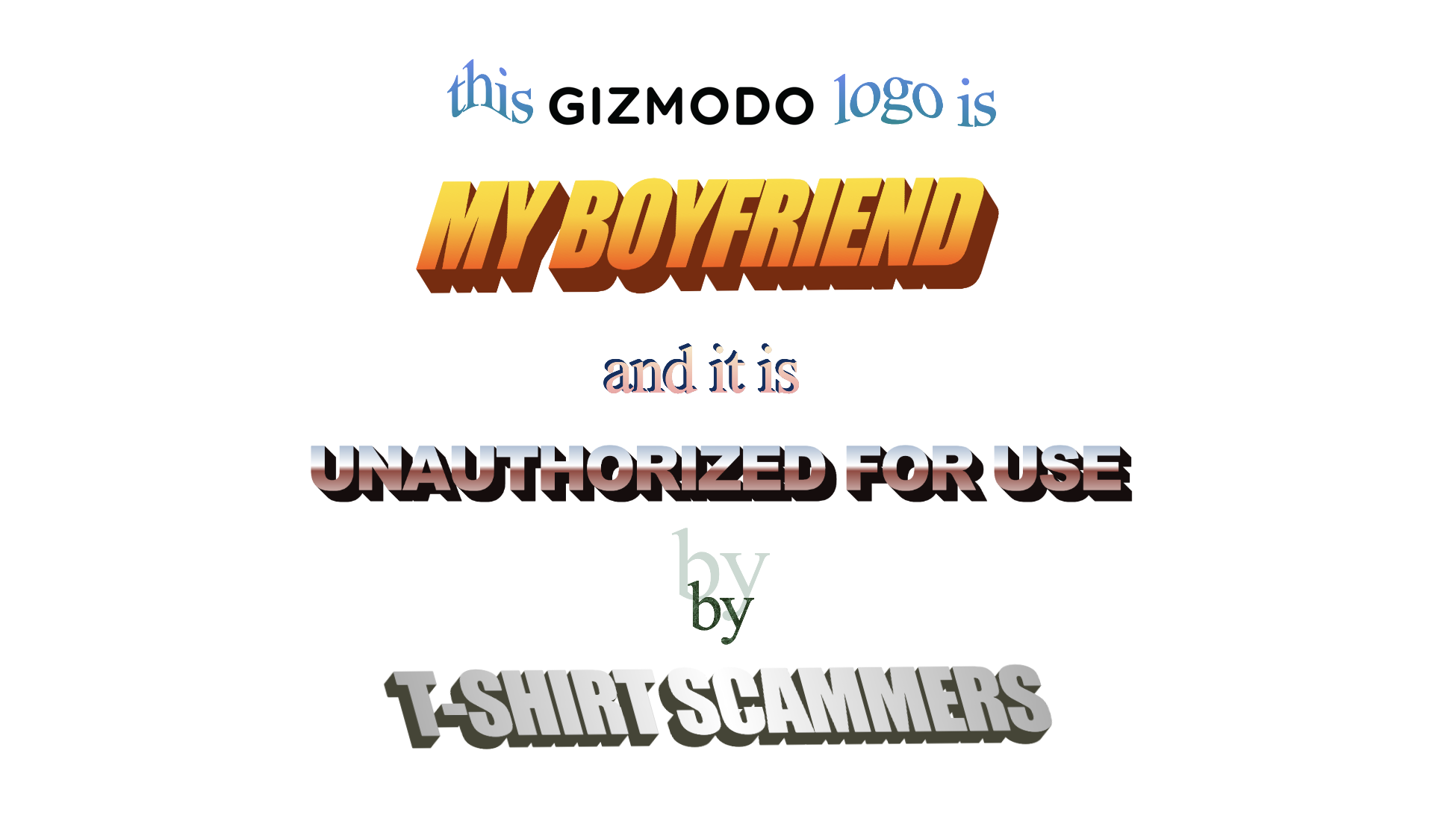I Want That On A T-Shirt
by Tom McKay
Artists on Twitter say that their work is regularly stolen by armies of bots that generate t-shirts from popular designs—and they’ve got the receipts to prove it.
Here’s the scam: Bots linked to popular t-shirt sales platforms appear to be crawling Twitter for replies to artists that mention phrases like “I want that on a t-shirt” or “Can I get that on a t-shirt?” Within hours, vendors on popular t-shirt destinations (including Amazon, A&H Merch, Toucan Style, Moteefe and others, according to Medium) then start offering the original work for sale without seeking the artist’s approval, let alone cutting them in on the take.
The only way to have the infringing material removed is for the artist to then contact the platforms and suffer through a slow-moving takedown process. It’s an intractable problem for independent artists who rely on social media platforms for visibility but are having their work stolen en masse.
Painter Rob Schamberger highlighted the issue in a December 1 tweet, writing “Never, ever, EVER respond to someone’s art on Twitter saying you want a shirt with that art. Bot accounts will cue into that and then pirate the artwork. This then becomes a nightmare for the artist to get the bootleg merchandise taken down.”
From there, Twitter user and artist @Hannahdouken came up with an idea: the bots doing the pirating may be able to detect when customers may be interested in purchasing a shirt, but they’re not smart enough to discern what the actual content of the shirt is.
@Hannahdouken asked Twitter users to respond to an image stating “This site sells STOLEN artwork, do NOT buy from them!” saying variations on the phrase “I want this on a shirt.” It worked...
... after which all hell broke loose, with Twitter users escalating the prank to include terrible memes and intellectual property belonging to the infamously tight-fisted Disney Corporation, like Mickey Mouse. Multiple stores almost immediately ran shirts saying things like “Not licensed by the Walt Disney Company / This is NOT a parody! We committed copyright infringement and want to be sued by Disney. We pay ALL court and tribunal fees.”
Another Twitter user was able to trick one of the stores into running a shirt with a picture of Mickey Mouse saying “China must be held accountable for its crimes against Uighur Muslims! Just ask me, Mickey Mouse! IP of the Disney corporation! Ha-ha!”
Other stores ran shirts with the logos of Disney, Amazon, Google, Coca-Cola, Walmart and Apple surrounding the phrase “Summoning circle for legal action,” while another shirt with Nintendo’s Mario and Mickey Mouse behind the phrase “Copyright infringement” also made it onto online stores. Another ran a drawing of a cat’s butthole under the description “exclusive edition.”
This is, to an extent, emblematic of the way marketplace platforms have enabled scammers to mass-market fraudulent goods with relative ease—prior reporting has shown that Amazon, for example, is flooded with stolen artwork that it is slow to take down or sometimes never does. Such theft is also reportedly rampant on Instagram. Amazon also has a counterfeiting epidemic, that has persisted despite what the company says is hundreds of millions of dollars in efforts to fight it.
The Organisation for Economic Co-Operation and Development estimated earlier this year that as much as 3.3 per cent ($863 billion) of merchandise sold worldwide is counterfeit, fuelled largely by online sales.
While massive corporations like Disney have the means to fight IP theft, independent creators usually don’t. And on the other side, copyright takedown systems in use at major platforms like YouTube often strike down media protected by fair use laws while leaving creators vulnerable to blackmail via bogus copyright claims.
Efforts to fix this system, such as the Copyright Alternative in Small-Claims Enforcement Act of 2019 (CASE Act), could open the doors to an even more punitive copyright system that enables more copyright trolling. The whole thing is a mess.
“If you’re an artist and your designs get stolen its extremely frustrating, since the whole process is so automated and quick there’s few things to prevent this, and the process of getting these shops to remove your work is so frustrating and doesn’t stop them from doing it again,” @Hannahdouken told Gizmodo via Twitter DM. “The shirts they sell are extremely cheap as well, so people probably feel more inclined to buy it and less likely to check on the legitimacy of sites, instead of buying from an artists store where they actually get a cut.”
Many of the shirts have since been taken down after either vendors or platforms caught on; Amazon didn’t return Gizmodo’s request for comment, while the Daily Dot reported neither did “several of the offending companies.”
“I’m not sure if this can be stopped at all,” they added. “Even if Disney etc would get involved, they will probably just remove all the designs with trademarked characters on them while the people running the sites promise not to do it again, continuing to steal art from much smaller and vulnerable creators.”
@Hannahdouken recommended that customers think twice before purchasing art from an online t-shirt vendor to make sure their dollars are actually going to independent creators who need it.
“Do some reverse google image searching just to make sure,” they told Gizmodo. “Avoid the shops that are known for doing these shady practices, spread the word about which ones you can’t trust, and follow and support individual artists.”